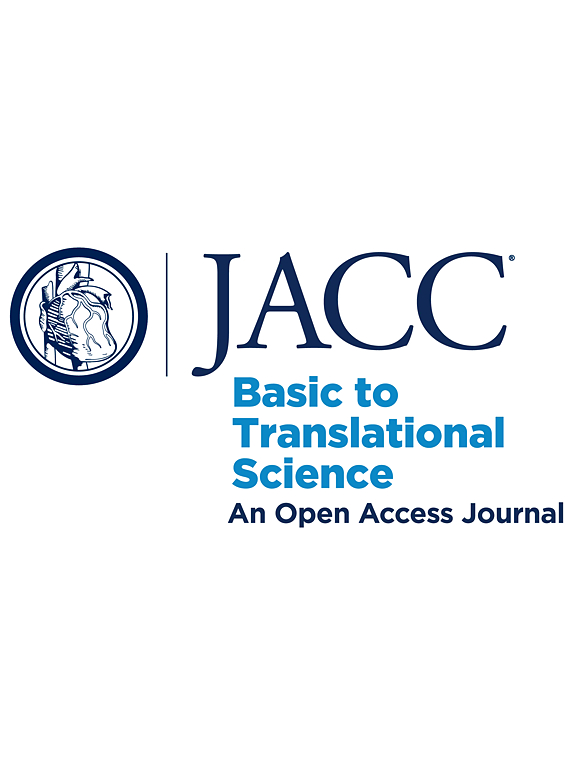Apolipoprotein A1 (CSL112) Increases Lecithin-Cholesterol Acyltransferase Levels in HDL Particles and Promotes Reverse Cholesterol Transport
IF 8.4
1区 医学
Q1 CARDIAC & CARDIOVASCULAR SYSTEMS
引用次数: 0
Abstract
Although high-density lipoprotein (HDL) cholesterol is inversely correlated with cardiovascular risk, an emerging paradigm is focused on increasing reverse cholesterol transport (RCT) and HDL function via apolipoprotein A1 (ApoA1). The objective of this study was to investigate the effect of ApoA1 (CSL112) infusion on HDL protein composition, cholesterol esterification rate (CER), and cholesterol efflux capacity (CEC) in patients treated after acute myocardial infarction. CSL112 reduced levels of apolipoproteins A2, B, C, and E and serum amyloids A1 and A4, whereas ApoA1, ApoM, and lecithin-cholesterol acyltransferase were significantly elevated. Increased CEC, plasma HDL cholesterol levels, CER, and CEC also were observed in CSL112-treated patients.
载脂蛋白A1 (CSL112)增加高密度脂蛋白颗粒中卵磷脂-胆固醇酰基转移酶水平并促进胆固醇逆向转运
尽管高密度脂蛋白(HDL)胆固醇与心血管风险呈负相关,但一种新兴的范式关注于通过载脂蛋白A1 (ApoA1)增加胆固醇逆向转运(RCT)和HDL功能。本研究旨在探讨ApoA1 (CSL112)输注对急性心肌梗死患者HDL蛋白组成、胆固醇酯化率(CER)和胆固醇外排能力(CEC)的影响。CSL112降低了载脂蛋白A2、B、C和E以及血清淀粉样蛋白A1和A4的水平,而ApoA1、ApoM和卵磷脂-胆固醇酰基转移酶显著升高。csl112治疗的患者CEC、血浆高密度脂蛋白胆固醇水平、CER和CEC也有所增加。
本文章由计算机程序翻译,如有差异,请以英文原文为准。
求助全文
约1分钟内获得全文
求助全文
来源期刊

JACC: Basic to Translational Science
CARDIAC & CARDIOVASCULAR SYSTEMS-
CiteScore
14.20
自引率
1.00%
发文量
161
审稿时长
16 weeks
期刊介绍:
JACC: Basic to Translational Science is an open access journal that is part of the renowned Journal of the American College of Cardiology (JACC). It focuses on advancing the field of Translational Cardiovascular Medicine and aims to accelerate the translation of new scientific discoveries into therapies that improve outcomes for patients with or at risk for Cardiovascular Disease. The journal covers thematic areas such as pre-clinical research, clinical trials, personalized medicine, novel drugs, devices, and biologics, proteomics, genomics, and metabolomics, as well as early phase clinical trial methodology.
 求助内容:
求助内容: 应助结果提醒方式:
应助结果提醒方式:


